16 Types of Keys to Lock Away Your Security Concerns
Author: Rick Worst | Editor: Omar Alonso
Review & Research: Jen Worst & Chris Miller
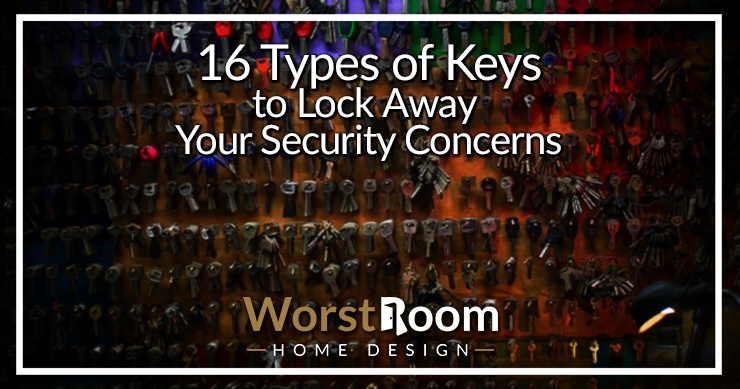
Locks and keys have been around since ancient times. And as the complexity of our society increased so too did the complexity of our security systems and the many types of keys available.
16 Types of Keys
With new security concerns cropping up as time passes we have been pushed to find solutions to these concerns as well. Here are the 16 types of keys that have been designed to address our varying needs.
Transponder Key
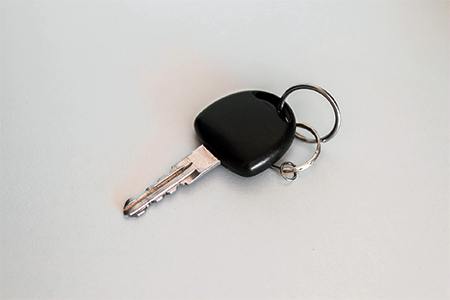
Transponder key styles are usually the key to a car or any other type of vehicle. Such keys have been embedded with a chip or a radiofrequency transmitter as a safety measure against car theft.
When the key is placed in the ignition a low-frequency radio signal is emitted from the key to a computer near the ignition switch of the car.
The car will start only if the key which was specifically programmed for your car is inserted into the ignition. Some cars even shut down completely if a different key is used.
These keys cannot be duplicated easily by using a key cutter or even at a hardware store; you need to contact the dealer to get a duplicate made and programmed according to the model. This is a long and expensive process that deters thieves.
Laser-Cut Key
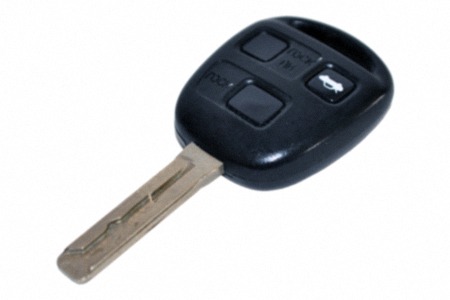
Laser-cut key types are different from your regular keys because they do not have carved grooves on the blades. Instead, special equipment is used to make one long groove cut right down the middle of the key.
This cut is made on both sides of the blade, making the key easier to use as it can be inserted from any direction. Moreover, each laser cut key is unique making them difficult to duplicate.
Laser-cut car keys are difficult to duplicate as the laser cutting machines are expensive and not readily available. You need to contact the dealership to get a key replacement. These factors safeguard cars with laser-cut keys from theft.
Dimple Key
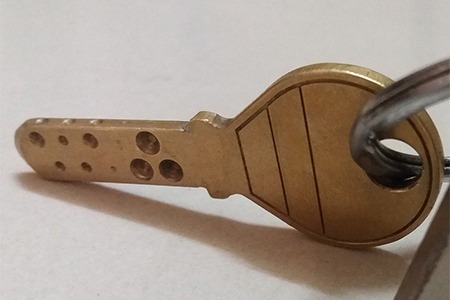
Dimple types of keys feature a rectangular blade indented with cone-shaped dimples on both sides. They do not have any added security features like the transponder key, however, they are quite easy to use.
The dimples are aligned symmetrically on both sides of the key’s blade. This ensures that you can open the lock whichever way the key is inserted into the lock. These keys usually have two rows of dimples that fit into corresponding cone-shaped pins within the lock.
Although not the safest key options, these keys cannot be duplicated just like that. These locks come with a card or a code and duplicate keys need to be ordered using this number.
Valet Key
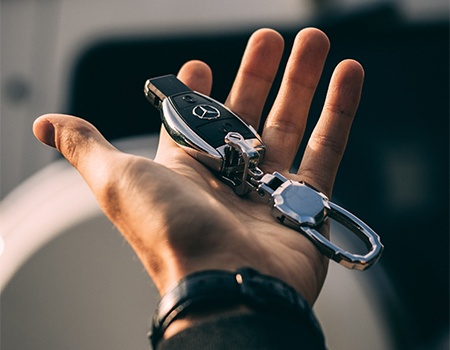
Valet keys are a kind of spare key that you can get along with your car. While the main key provides access to all of your car’s features, valet keys only have limited access. They can be used to open doors and to start the car.
This means that valet keys cannot unlock the glove box, open the trunk or perform any other function that your key does except for opening the door and starting the car.
Valet keys make your vehicle more susceptible to theft. Since most high-end keys cannot be duplicated easily in an inexpensive manner, car thieves often try to nab your valet keys to steal the car. Since valet keys can be used to start the car this can become a serious problem.
Some automobile manufacturers provide valet keys inside the glove box at the time of purchase, so you should always remove them immediately to prevent vehicle theft.
Except for this drawback, valet keys are a handy addition to own, especially if you use valet services a lot. You can hand over your car to the valet without fear of privacy violations.
Keycard
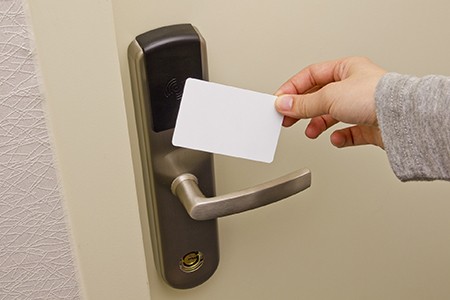
Keycards are cards that are approximately the shape and size of a credit card and can be used to unlock doors. Although they don’t look like your conventional key types, keycards perform all the same functions just as well (with some added security benefits) as any other types of door locks.
Keycards also come in many different types and operate in different ways. Some keycards have holes that are detected by LEDs, some operate with the help of magnetic stripes and some also use RFID microchip technology.
These door key types are usually used in hotels and government establishments. As keycards are easier to replace and reprogram, they are safer, more convenient and cost effective in such settings.
Tubular Key
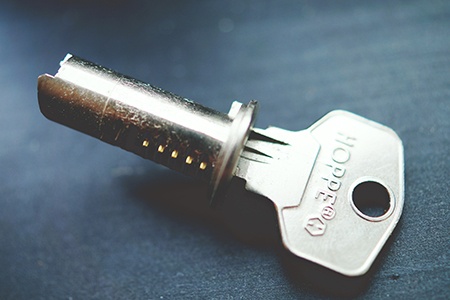
Tubular keys look very different from your normal types of keys as they come in a cylindrical shape and are much shorter. They are also known as barrel keys or circle pin tumbler keys.
They are commonly used in ATMs, vending machines, cash registers and some types of safes, glass cabinets in stores, and in elevators. They help prevent vandalism, theft and unauthorized entry. Tubular keys are an effective solution as they are very difficult to duplicate.
Primary Key
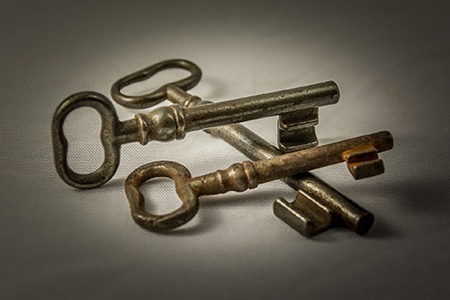
While most key styles are designed to unlock one lock, primary keys can unlock multiple locks. Each lock has a separate key that can be used to unlock it but it also allows a primary key to open it.
Primary keys can be useful to a small hotel or guesthouse owner. These keys provide access to multiple rooms without having to get the individual key from the occupant. This feature can be beneficial in times of an emergency.
At the same time, losing a primary key can cause a lot of trouble and even damage or loss of property.
Paracentric Key
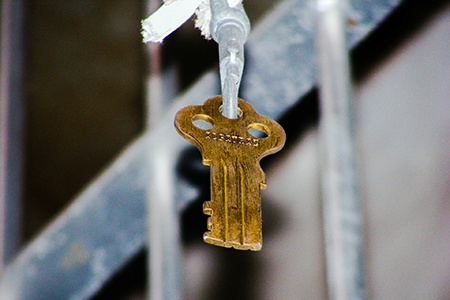
Paracentric keys have very small teeth at the end of a contorted blade. This unusual design makes these keys difficult to duplicate. Picking paracentric locks is also a tough job. Because it possesses these qualities such keys are normally used in prisons.
Abloy Key
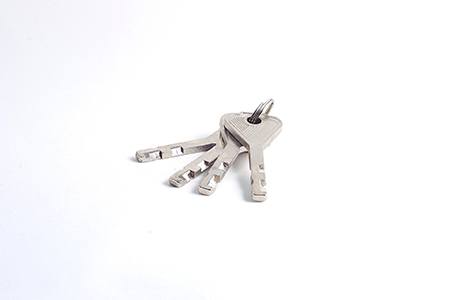
Abloy key types are used on disc tumbler locks that make use of a springless system. Both these factors make such locks very difficult to pick, making them great for your front and back door, garage, or garage door alternatives.
They are the safest locks that you can install in your house to ensure that intruders don’t get in. Because Abloy locks are a foolproof and safe option, most of the houses in Finland use these locks.
Skeleton Key
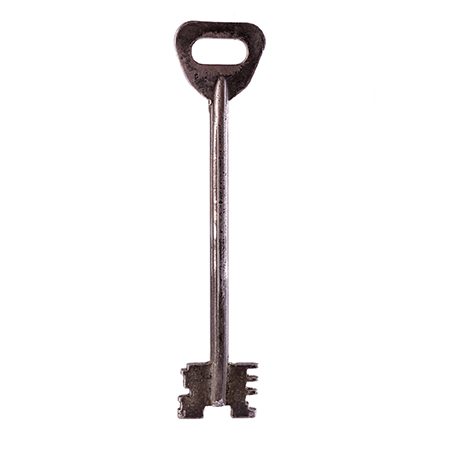
Warded locks contain a set of obstructions that can only be opened with keys that have notches or slots corresponding to the obstructions in the lock. A skeleton key acts as a sort of master key to warded locks.
Skeleton keys are warded lock keys in which the jagged edges are filed off in such a way that you get the skeleton structure of the key. This skeleton can be used to unlock multiple locks.
Skeleton keys are commonly used in handcuffs and in hotels that don’t use an electronic keycard system.
Cruciform Key
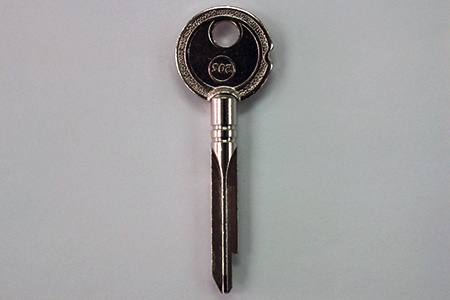
Cruciform keys are commonly used in industrial settings. These types of keys can be identified from their X-shaped cross sections. The X-shape is formed because the four sets of teeth are located at 90-degree angles on the blade.
These locks are very hard to pick without a duplicate key. However, cruciform keys are pretty easy to duplicate. So make sure you keep yours safe.
Magnetic Key
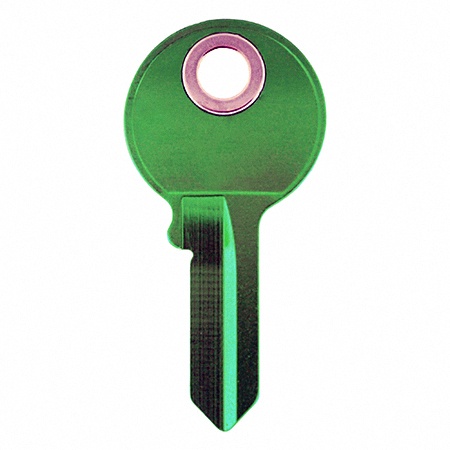
A magnetic key uses a system of multiple magnets to push or pull the tumblers within the lock to unlock it. They make use of magnetic force and not electricity to control the mechanism.
Magnetic locks make use of keys and pins made from permanent magnets that are not affected by other magnetic fields.
Double or Four-Sided Key
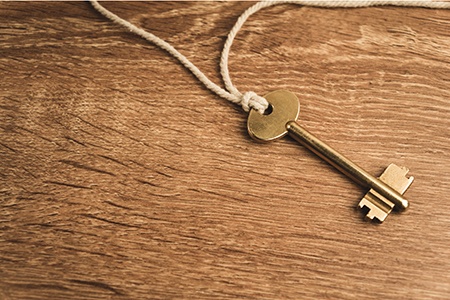
Residential locks usually make use of double or four-sided key types. These types of house keys have teeth on two or four sides of the key.
Normal keys only have one set of teeth, so the additional teeth will provide more security and make these locks more difficult to pick. Too bad we can't get these to secure a sliding glass door.
Smart Key
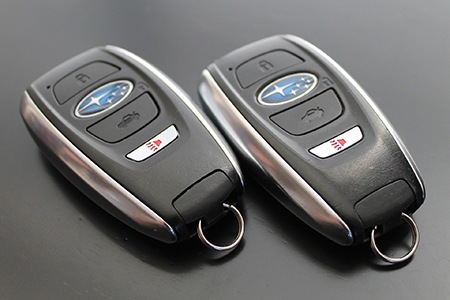
Smart key styles are one of the most advanced and safest options out there. They are similar to transponder keys but offer many other functions as well. Unlike your regular keys, smart keys do not have blades; they work in the form of a remote.
In the same way that transponders use RF waves as a safety feature, smart car keys make use of rolling security codes for safety. The engine starts only if the security code emitted by the key matches the one on the vehicle’s computer.
Moreover, with these keys you can start the engine at the click of a button, you don’t need to physically insert keys into the ignition.
Since they have such advanced features and functions these keys are very hard to duplicate. You can only get a replacement from the dealership. These keys cost a lot more than getting regular keys or transponder keys, but they are the safest option available right now.
VAT Keys
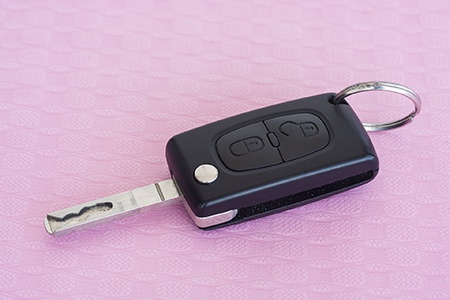
VAT stands for "vehicle anti-theft". These are different types of keys, and you can actually upgrade your own key if you don't want a new one, that have microchips inside them. These embedded microchips have codes that are paired with your specific car.
The point of this not only stops your key from being used with another vehicle but it stops other similar keys from starting up your own car. They're great deterrents because it takes a lot of technical knowhow to replicate these. It's simply not worth the time for a bad guy to do.
Mechanically Cut Keys
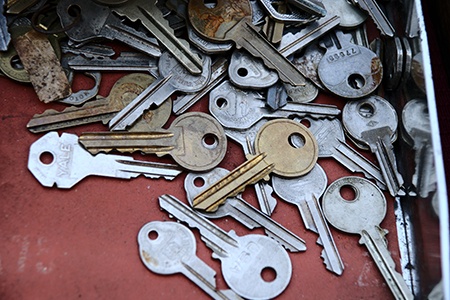
These are your very basic types of door keys for locks with patterns along the top to match tumblers that will unlock a door if lifted in the right distances. They're cut by machine or even die-casted. The problem with these is they're very easy to copy. As easy as walking through a screen door or screen door alternatives.
They're so easy to copy that you can make copies at a kiosk for a couple bucks at your local supermarket. They're just too basic if you care about security beyond the most basic deterrent.
Types of Keys for Every Lock
Locks and keys provide us with a sense of safety and security. Who knew that there were so many different types of keys, each addressing a specific concern or designed for a specific reason.
With so many innovations coming up, we can rest assured that we can always find new ways to keep our property and ourselves safe and sound. The various types of keys are one of the main ways to do it.



